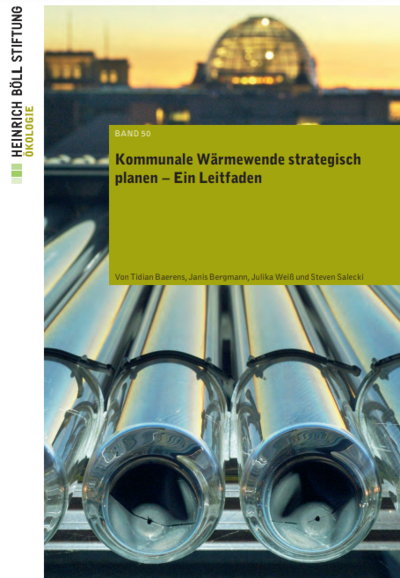Planning the municipal heat transition A Handbook
The heating transition is one of Germany's greatest challenges and has become even more relevant with the Russian war of aggression against Ukraine. However, around 80 per cent of heat in Germany is still generated using fossil fuels. The amendment of the “Gebäudeenergiegesetz“ and “Wärmeplanungsgesetz“ provide a new framework and are intended to help accelerate the heating transition and achieve climate protection targets. Local authorities have a central role to play in this.
This handbook provides municipal stakeholders with both orientation and practical knowledge for strategic and successful heat planning and the implementation of an ambitious heat transition. The authors highlight transformation paths and successful examples, thus encouraging readers to tackle the heating transition locally.
The publication first sets out the initial situation and shows why it is worth implementing the heat transition from a municipal perspective and what a future heat supply could look like. The authors then present the key instrument of municipal heat planning and supplementary building blocks for implementing the municipal heat transition – such as communication and participation – as well as the district level as a space for action and the area of financing and business models. A central section of the handbook is dedicated to municipal stakeholders. The perspectives and backgrounds of the key stakeholders are presented in order to prepare municipal actors for dealing with these groups. Finally, the handbook presents the most important legal framework conditions for the heating transition and offers a service section with references to further information and support services.



